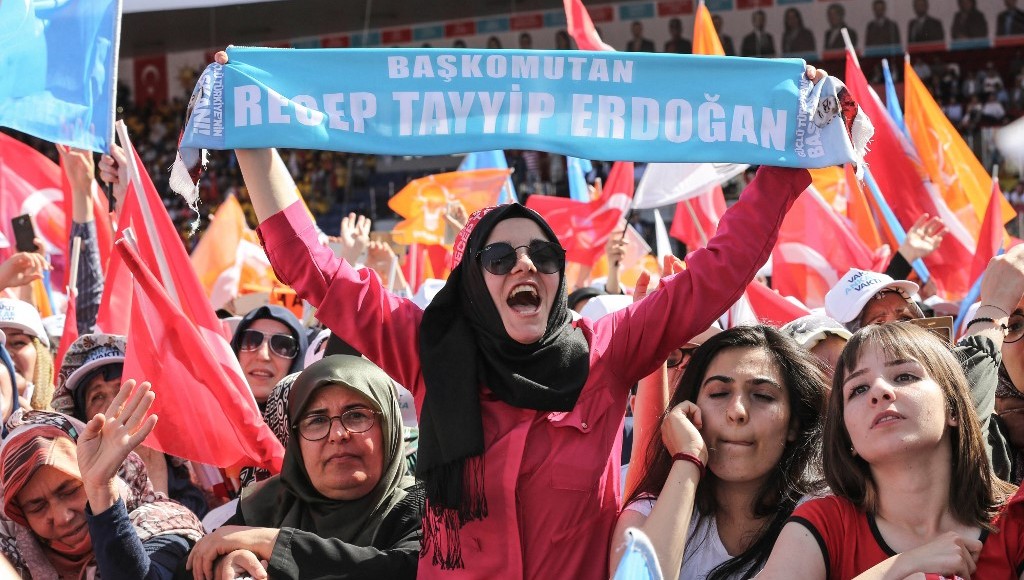The approval rating of Turkish President Recep Tayyip Erdoğan continued to drop in July despite several moves considered “populist,” according to the results of a survey.
The results of MetroPoll’s monthly “The Pulse of Turkey” survey for July, posted on Twitter on Thursday, revealed that 53.7 percent of Turks disapprove of Erdoğan’s performance as president, while his approval rating declined to 41.5 percent, 2.7 percent lower than his approval rating in June. The disapproval rating for Erdoğan in June was 51 percent.
The survey also showed that 7.3 percent of voters who had supported Erdoğan’s ruling Justice and Development Party (AKP) and 31 percent of far-right Nationalist Movement Party (MHP) voters in the 2018 general election disapproved of Erdoğan’s performance. The AKP and the MHP established the Public Alliance before the 2018 polls and are election partners.
The drop in Erdoğan’s approval rating comes at a time when his government has increased the minimum wage for a second time this year to cushion the blow from the soaring cost of living ahead of next year’s general election.
The hike in the net monthly take-home pay to 5,500 lira ($306) means the nominal minimum wage has nearly doubled since the end of last year.
It stood at 2,826 lira in late December and 4,253 lira in January.
The drop in Erdoğan’s approval rating also coincides with Erdoğan threatening to block Sweden and Finland’s applications to join NATO due to their alleged support for “terrorists” sought by Turkey.
Turkey later dropped its objections, and Erdoğan said his government “got what it wanted” after an agreement was signed with Stockholm and Helsinki at a NATO summit in Madrid on June 28. In the agreement the two Nordic countries agreed to examine Turkish extradition requests for political dissidents who are deemed “terrorists” by Turkey “expeditiously and thoroughly.”
Erdoğan’s government presented the deal as a “victory” for Turkey although there is widespread doubt about the likelihood of the two countries extraditing political opponents to Turkey.
Professor İhsan Dağı, a faculty member of the international relations department of Ankara’s Middle East Technical University, told Turkish media that the fall in Erdoğan’s approval rating despite the minimum wage hike and the deal in Madrid point to a difficult period for the president that will be difficult to reverse.
Turkey is scheduled to hold general and presidential elections in 2023.
Erdoğan, whose ruling AKP has been in power as a single-party government since 2002, was elected president in 2014 and re-elected in 2018. His election in 2018 was under a presidential system as Turkey switched from a parliamentary to a presidential system of governance with a public referendum in 2017.
Under the presidential system, Erdoğan is accused by critics of establishing one-man rule, engaging in rampant corruption and using the state’s resources for the benefit of his family and cronies while the Turkish people are overwhelmed by the increasing cost of living caused by the depreciation of the Turkish lira and a record level of inflation at around 78.6 percent, according to official figures.
Source: Turkish Minute



